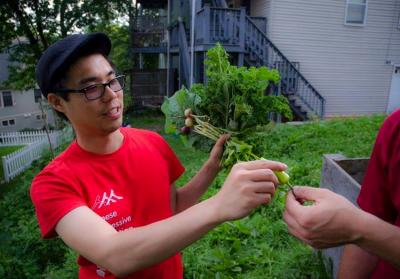
The Boston region has one of the nation’s most thriving economies, with job growth above the national average, thanks in large part to the academic and healthcare sectors. But the benefits are not shared equally. The median income for white households is more than twice that of Latino households, and nearly twice that of black households.
To address these inequities, a patchwork of Boston organizers are working to create a “solidarity economy” (SE)— an economy that, as the U.S. Solidarity Economy Network (USSEN) phrases it, “puts people and planet first” and is grounded in principles of solidarity, democracy, sustainability and equity in race, class and gender. It’s meant to be a pluralist approach, a flexible pragmatism designed to meet the needs of specific communities.
Boston is home to a diverse assortment of SE ventures, from employee-owned green businesses like Cooperative Energy, Recycling and Organics, which collects and composts food waste and sells the soil to farmers, to the Greater Boston Community Land Trust Network, a patchwork of community-owned tracts that offer affordable housing, urban agriculture and other services oriented toward the public good.
Read the rest at In These Times
Go to GEO front page

Add new comment